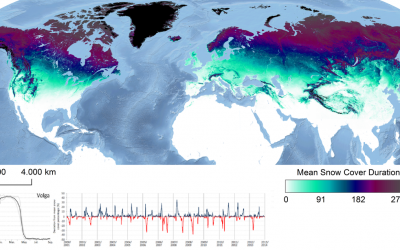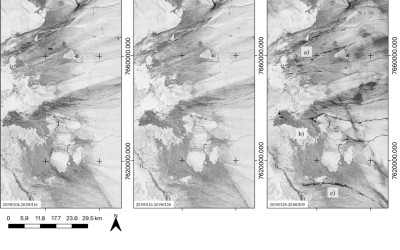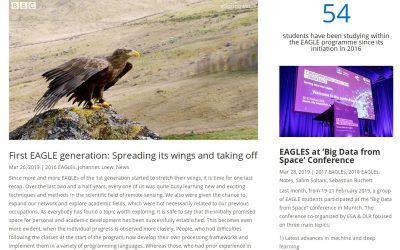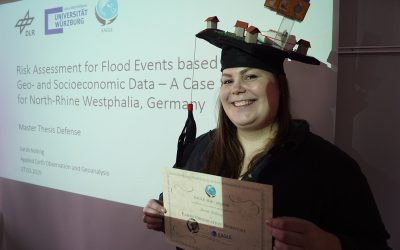Aim:
Within this course different methods to analyse point pattern statistically and conduct a spatial prediction are covered. Students will learn how to design such analysis, how to avoid caveats, troubleshoot errors and interpret the results.
Content
Different statistical methods will be applied for analysing spatial point patterns, such as vegetation samples or biodiversity related information. These results will be statistically predicted using methods such as GLM, GAM, Random Forest or MaxEnt. Implications of spatial point patterns as well as chosen environmental parameters will be discussed. All methods will be practically applied during the course using the programming language R. The needed pre-requisites are covered in the course “Applied Programming for Remote Sensing and GIS“.
Coding
Software
Techniques
Content
General Course News and Updates
EAGLE summer dialogue 2019
Our next EAGLE summer dialogue to bring together all EAGLE students and lecturer, staff of our department and all colleagues from close and far away is slowly approaching. On June 28th we welcome again everybody to join us for the EAGLE summer event with two keynotes:...
Julia Sauerbrey successful M.Sc. defense
Congratulations to Julia Sauerbrey who successfully presented her M.Sc. thesis. Read more about her interesting research project.
application deadline 2019 is approaching
Application deadline for the winter term 2019 is approaching
Internship and MSc presentations
On Thursday, May 23rd, we will have a range of very interesting internship, innovation lab and M.Sc. idea presentations (10 am, OKW 86, room 0.004): Sebastian Buchelt (Internship Presentation): "Assessment of classification algorithms on the example of sea ice - why...
M.Sc. defense by Julia Sauerbrey
Julia Sauerbrey will defend her M.Sc. "Integration of SAR and Optical Satellite Imagery: Time-Series Analysis of Sentinel-1 and Sentinel-2 Imagery for Detection of Active Morphodynamics: A Case Study in the Atacama Desert, Chile" on Thursday 9th of May at 10am in room...
EAGLE students preparing for ESA LPS 2019
our EAGLE students are organizing a joint trip and accommodation to the ESA LPS symposium in Milan and are currently preparing all other things such as business cards. They are very much looking forward to many highly interesting presentations and to meet diverse...
Ahmed Saadallah successfully defended his thesis
We congratulate Ahmed for his great M.Sc. presentation and the whole audience for the very lively discussions on methods and implications plus historical reasons of the detected patterns. Another EAGLE M.Sc. students graduated and is now an Earth Observation...
check out the news blog by our students
Our EAGLE students are posting various news about their activities, experiences or codes they developed. Read about their past years within the EAGLE program, their participation in international remote sensing conferences or what they achieved within EAGLE courses....
M.Sc. thesis presentation by Ahmed Saadallah
Ahmed Saadallah will defend his M.Sc. thesis "The Potential of Earth Observation for Monitoring Agricultural Lands in Egypt (1984-2017)" on Wednesday 10th of April at 2pm in the student working room JMW 52. The need for accurate and timely information on the extent...
Sarah Nolting defended her M.Sc.
Congratulation to Sarah Nolting for successfully defending her M.Sc. thesis! Another interesting EAGLE M.Sc. thesis presented on flood risks and populations in urban environments.










